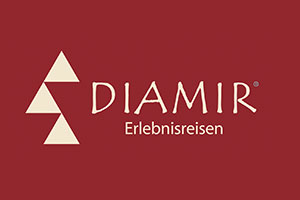Nigeria
Reisetipps für nigeria
Top 5 Erlebnisse
Von einem blühenden Start-up-Sektor bis zu weitläufigen Nationalparks – das ist Nigeria. Zu den Höhepunkten gehören:

Küste
Nigeria lockt mit wunderschönen Küstengebieten voller ruhiger Strände wie der Tarkwa Bay in Lagos, dem Elegushi Beach und dem Ibeno Beach in Akwa Ibom. Diese Orte bieten Gelegenheit zum Entspannen, für Wassersport sowie traumhafte Ausblicke auf den Sonnenuntergang über dem Meer.

national Parks
Nigeria beheimatet vielfältige Ökosysteme, deren natürliche Schönheit in Nationalparks und Wildreservaten wie dem Yankari-Nationalpark, dem Cross River-Nationalpark und dem Gashaka-Gumti-Nationalpark zum Ausdruck kommt. Hier bescheren zahlreiche Wildtiere, üppige Landschaften und das bunte kulturelle Erbe einzigartige Fotomotive.

Kulturelles Erbe
Nigerias reiches kulturelles Erbe offenbart sich in historischen Stätten wie der antiken Stadt Benin, dem „Heiligen Hain“ der Göttin Osun in Oshogbo und der alten Kulturlandschaft Sukur. Sowohl Osun-Osogbo als auch Sukur zählen zu den UNESCO-Kulturerbestätten. Das Land bietet zahlreiche Möglichkeiten, traditionelle und moderne Kunst, Musik und lebendige Feste zu erleben.

KÜche
Auf den bunten lokalen Märkten und in den zahlreichen Restaurants des Landes werden authentische nigerianische Gaumenfreuden serviertdarunter Jollof-Reis, Suya und gestampfte Süßkartoffeln mit Egusi-Suppe.

Afrobeat
Nigeria ist berühmt für seine Musik wie Afrobeat und Highlife. Live-Konzerte, Festivals und aufstrebende Kunstgalerien machen die Kunstszene des Landes lebendig.
Touristische Infrastruktur
Nigeria verfügt über ein Netz von Inlandsflügen, Busverbindungen und Straßen, die die größeren Städte miteinander verbinden. Während einige Straßen gut instand gehalten werden, sind andere möglicherweise reparaturbedürftig.
Unterkunft: Touristen können aus einer Vielzahl von Unterkunftsmöglichkeiten wählen, darunter Luxushotels, Boutique-Gästehäuser und preisgünstige Unterkünfte. Viele dieser Unterkünfte bieten einen komfortablen Aufenthalt und einen einfachen Zugang zu den Touristenattraktionen.
Klima und Reisezeit
In Nigeria herrscht ein tropisches Klima mit einer Regenzeit von April bis Oktober und einer Trockenzeit von November bis März.
Visum und Einreise
Deutsche Staatsangehörige benötigen ein Visum für Nigeria. Das Visum wird in der Regel persönlich bei den nigerianischen diplomatischen Vertretungen in Berlin oder Frankfurt am Main beantragt, mit wenigen Ausnahmen auch online. Die Bearbeitung des Visums kann mehr als drei Wochen dauern und bietet eine Gültigkeit von drei Monaten bei einem maximal vierwöchigen Aufenthalt. Kurzzeitvisa berechtigen nicht zur Aufnahme einer Beschäftigung; Arbeitsvisa müssen separat bei der nigerianischen Botschaft in Berlin beantragt werden. Ein ausgewählter Personenkreis kann im Voraus online ein „Visa on arrival“ beantragen, dem eine schriftliche Bestätigung beigefügt ist, die unter bestimmten Umständen bei der Einreise ausgestellt wird.
Stories
International Hotel Chains Are Driving the Hotel Boom in Africa
Frankfurt, 03 April 2024 - The "Big 5" of global hotel chains - Accor, Hilton, IHG, Marriott International and Radisson ...
Internationale Hotelketten treiben den Hotelboom in Afrika voran
ReThinking Africa Initiative setzt sich für Investitionen in Afrikas Tourismuswirtschaft ein Frankfurt, 03. April 2024. Die „Big 5“ der globalen Hotelketten ...
Voice4Africa x ReThinking Africa News March
KLEBER Group x ReThinking Africa News March 2024 Content Foreword Investment in Africa's tourism industry as a driver for sustainable ...
Unsere Partner in Nigeria
Allgemeine updates
Current accessibility
Corona precautionary measures
Status: 03.03.2022











